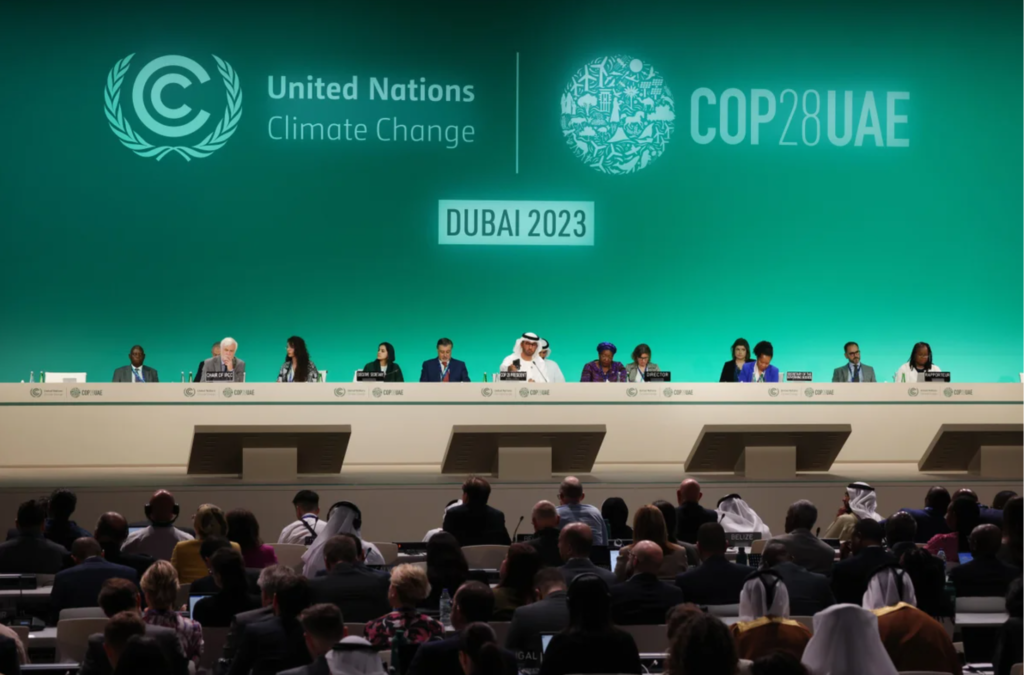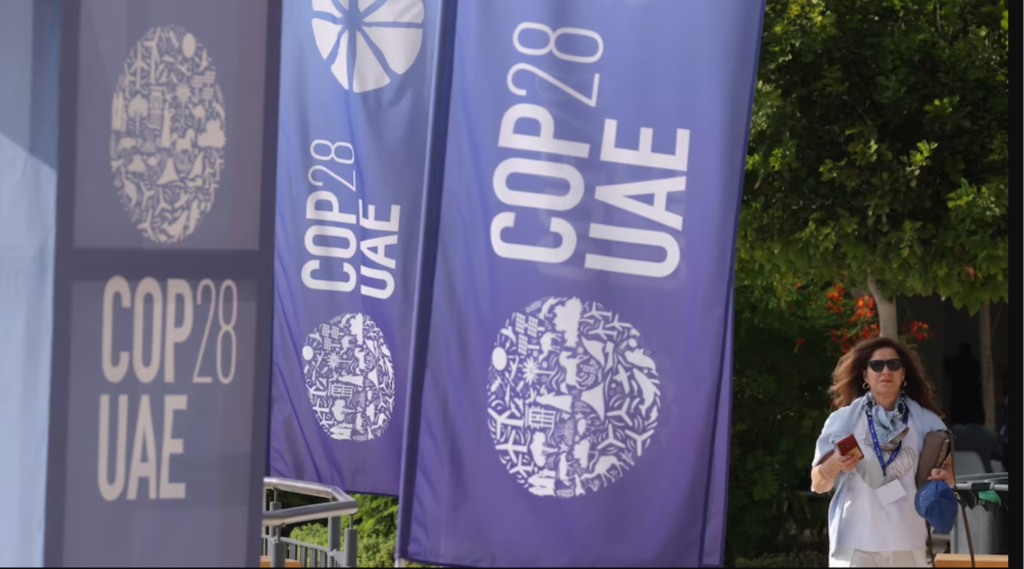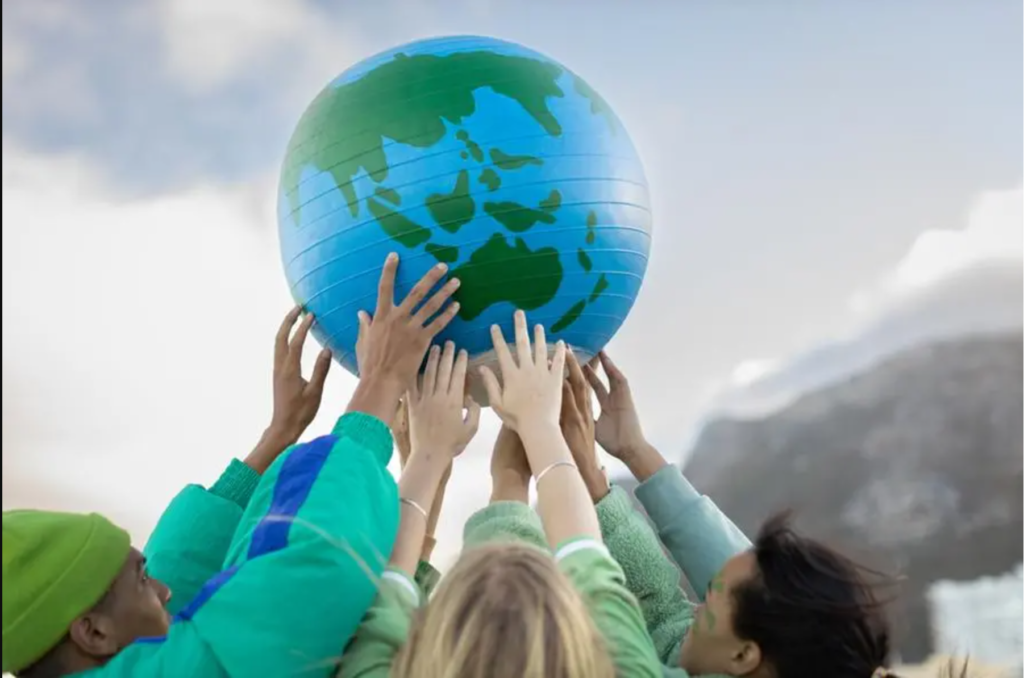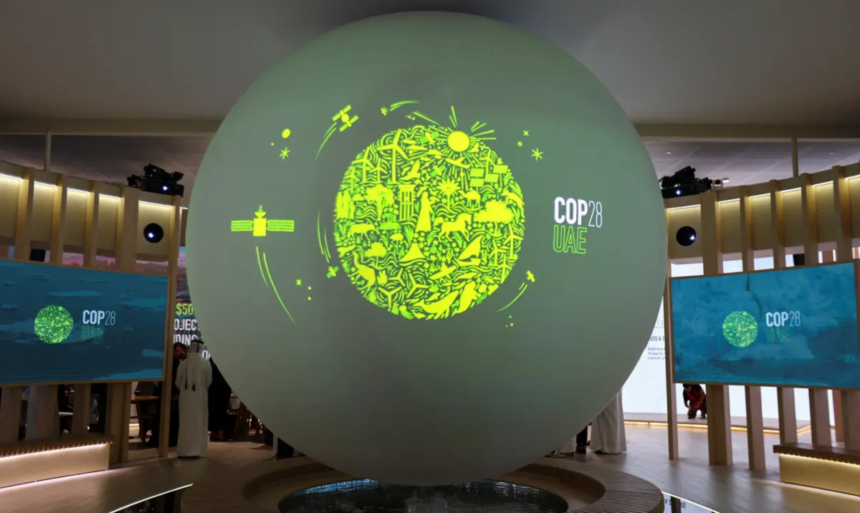The COP28 conference is the 28th annual United Nations (UN) climate meeting where governments will discuss how to limit and prepare for future climate change. The summit is being held in Dubai, in the United Arab Emirates (UAE), from 30 November until 12 December 2023. More than 70,000 delegates are expected to attend, including the member states (or Parties) of the UN Framework Convention on Climate Change (UNFCCC), as well as business leaders, young people, climate scientists, Indigenous Peoples, journalists, and various other experts and stakeholders.
COP28 conference
The COP28 conference is a crucial event for the global response to the climate crisis, as it will mark the first time that countries will review and update their national climate plans, or Nationally Determined Contributions (NDCs), under the Paris Climate Change Agreement. The Paris Agreement, which was adopted in 2015 and entered into force in 2016, is a landmark treaty that aims to limit global warming to well below 2 degrees Celsius, preferably 1.5 degrees Celsius, compared to pre-industrial levels, and to build resilience and adaptation to the impacts of climate change. The Agreement also sets a global goal of reaching net-zero emissions by 2050, meaning that any remaining emissions would be balanced by removing an equivalent amount of carbon dioxide from the atmosphere.
Also read : Bihar’s Afforestation Initiatives At The COP28 Summit In Dubai Have Garnered Global Attention

However, the current NDCs submitted by the Parties are not enough to achieve these goals. According to the latest report by the UN’s Intergovernmental Panel on Climate Change (IPCC), the world is already 1.1 degrees Celsius warmer than in the late 19th century, and is likely to reach 1.5 degrees Celsius by the early 2030s, unless drastic and immediate action is taken to reduce greenhouse gas emissions. The report also warns that the impacts of climate change are already being felt across the world, such as more frequent and severe heatwaves, droughts, floods, storms, wildfires, and sea level rise, and that these impacts will worsen with further warming. The report also highlights that some changes are irreversible, such as the loss of ice sheets and glaciers, and that some tipping points, such as the collapse of the Amazon rainforest or the thawing of the permafrost, could trigger abrupt and catastrophic changes in the climate system.

Therefore, COP28 is an opportunity for countries to show their commitment and ambition to tackle the climate emergency, and to align their actions with the best available science and the principles of equity and justice. The conference will also address several key issues and challenges, such as:
- The global stocktake: This is a process for countries and stakeholders to assess the collective progress towards meeting the goals of the Paris Agreement, and to identify the gaps and opportunities for enhancing action and support. The global stocktake will conclude at COP28, and will inform the preparation and submission of the next round of NDCs, due by 2025.
- The loss and damage finance facility: This is a mechanism to provide financial assistance to the most vulnerable and affected countries and communities to cope with the unavoidable and irreversible impacts of climate change, such as displacement, migration, and humanitarian crises. The details and modalities of the facility are yet to be agreed upon, and will be a key topic of negotiation at COP28.
- The global goal on finance: This is a target to mobilize at least $100 billion per year by 2020 from developed countries to developing countries to help them mitigate and adapt to climate change. However, this target has not been met, and there is a need to scale up and improve the quality and transparency of climate finance. The COP28 conference will also discuss the new collective quantified goal on finance, which will apply from 2025 onwards.
- The energy and just transition: This is a process of shifting from fossil fuels to renewable and clean sources of energy, while ensuring that the benefits and costs of the transition are shared fairly and equitably among all stakeholders, especially the workers and communities that depend on the fossil fuel industry. The COP28 conference will showcase the best practices and innovations in the energy sector, and will also address the social and economic aspects of the transition.
- The emissions gap: This is the difference between the current level of emissions and the level of emissions that is consistent with the 1.5 degrees Celsius goal. According to the UN Environment Programme, the emissions gap in 2030 is estimated to be 15 gigatons of carbon dioxide equivalent, which means that the world needs to cut emissions by 43% by 2030, compared to 2019 levels, to stay on track for the 1.5 degrees Celsius goal. The COP28 conference will urge countries to take urgent and ambitious actions to close the emissions gap, and to achieve net-zero emissions by 2050.

The COP28 conference will be held at the Expo City, a state-of-the-art venue that is part of the Dubai Expo 2020, the world’s largest exhibition that showcases the achievements and aspirations of more than 190 countries. The Expo City is designed to be a model of sustainability, innovation, and inclusivity, and will feature various facilities and attractions, such as the Al Wasl Plaza, the Sustainability Pavilion, the Mobility Pavilion, and the Opportunity Pavilion. The COP28 conference will also coincide with the UAE’s Golden Jubilee, which celebrates the 50th anniversary of the country’s formation and its vision for the future.
The COP28 conference is expected to be a historic and pivotal moment for the global community to demonstrate its solidarity and resolve to combat the climate crisis, and to secure a safe and prosperous future for all. The conference will also be a platform for showcasing the best examples and solutions for climate action, and for inspiring and empowering people to take action in their own spheres of influence. The conference will also be a testament to the UAE’s leadership and commitment to sustainability, innovation, and cooperation, and to its role as a bridge between the East and the West, and between the developed and developing countries.
Also read : Sam Manekshaw: The Field Marshal Who Led India To Victory In 1971




































